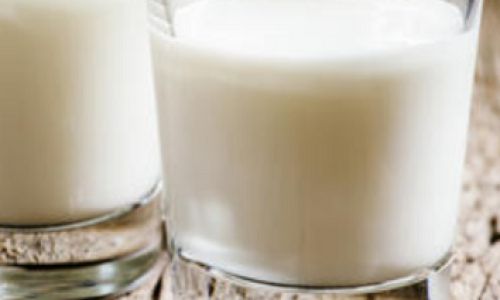Table of content
Introduction
Goat milk, known for its rich nutritional profile and delicate taste, has gained popularity among health-conscious consumers in recent years. Its unique blend of nutrients, including medium-chain fatty acids, vitamins, and minerals, offers a range of health benefits that make it a valuable alternative to cow’s milk. However, one common question that arises among goat milk enthusiasts is how to properly store this delicate dairy product to ensure its freshness and quality over an extended period. This article delves into the feasibility of storing goat milk in a freezer, exploring the science behind food preservation, the impact of freezing on goat milk’s nutritional value, and practical tips for successful long-term storage.
Understanding Food Preservation and Freezing
Food preservation techniques have evolved significantly over time, driven by the need to extend the shelf life of perishable goods and reduce food waste. Freezing is one of the most effective methods for preserving food, leveraging the principle that low temperatures slow down biochemical reactions and microbial growth, thereby inhibiting spoilage. When food is frozen, water within its cells forms ice crystals, which act as natural preservatives by reducing the availability of moisture that bacteria and other microorganisms need to thrive.
The suitability of a food item for freezing depends on several factors, including its water content, fat content, and the presence of enzymes or other compounds that might undergo adverse changes during the freezing process. Goat milk, with its relatively high water content and specific nutritional composition, falls into a category where freezing can be both beneficial and challenging.

The Impact of Freezing on Goat Milk
Nutritional Integrity
One of the primary concerns when freezing goat milk is the potential loss of nutritional value. While freezing effectively preserves most nutrients, some delicate components, such as vitamins and enzymes, may be affected. For instance, vitamins C and B-complex vitamins are water-soluble and can degrade slightly during the freezing and thawing cycles due to exposure to oxygen and changes in pH levels. However, these losses are generally minimal compared to the overall nutritional benefits retained.
Fat content in goat milk, which includes medium-chain fatty acids like capric and caprylic acids, is relatively stable during freezing. These fats are less susceptible to oxidation than long-chain fatty acids found in other dairy products, preserving their health benefits. Proteins and minerals, which are the main structural and nutritional components of goat milk, remain largely intact through the freezing process.
Texture and Taste
Freezing and thawing goat milk can alter its texture and taste, albeit to varying degrees. The formation of ice crystals within the milk can cause some separation of fats and proteins upon thawing, leading to a grainier consistency. This change is more noticeable in whole or homogenized goat milk than in skimmed versions, where the reduced fat content limits the extent of separation.
Taste-wise, goat milk may develop a slightly “off” flavor after freezing and thawing, particularly if not handled properly. This can be attributed to the breakdown of certain compounds during the freezing process or the growth of ice crystals that can disrupt the milk’s natural flavor profile. However, for many consumers, these changes are tolerable, especially when weighed against the convenience of having a stockpile of goat milk on hand.
Practical Considerations for Freezing Goat Milk
Preparation for Freezing
Before freezing goat milk, it’s crucial to prepare it correctly to minimize texture and taste alterations. Start by ensuring the milk is fresh and has not been previously frozen and thawed. Pour the milk into airtight, freezer-safe containers, leaving some headspace to allow for expansion as the milk freezes. Label the containers with the date to keep track of how long the milk has been stored.

For optimal results, consider portioning the milk into smaller containers. This not only makes thawing more manageable but also reduces the number of times the milk is exposed to temperature fluctuations, which can accelerate nutrient degradation.
Freezing and Storage Conditions
Place the filled containers in the freezer, preferably on a shelf where they won’t be disturbed or subjected to temperature fluctuations from the freezer door being opened frequently. Aim to maintain a consistent freezer temperature of around 0°F (-18°C) to ensure optimal preservation.
Thawing and Usage
When ready to use, thaw the goat milk in the refrigerator overnight to avoid rapid temperature changes that could further disrupt its texture. Once thawed, stir the milk gently to redistribute any separated fats and proteins. It’s important to note that thawed goat milk should not be refrozen, as this can further degrade its quality.
Use thawed goat milk within a few days for best results. While it may not have the exact same texture and taste as freshly purchased milk, it should still be suitable for most uses, including drinking, cooking, and baking.
Alternatives to Freezing
While freezing is a viable option for long-term goat milk storage, it’s not the only one. For shorter-term preservation, refrigeration can keep goat milk fresh for up to a week after opening, provided it’s stored in a clean, airtight container and kept at a temperature of 40°F (4°C) or below.

For those who prefer not to freeze their goat milk or need a more portable solution, powdered goat milk is an excellent alternative. Powdered milk retains most of its nutritional value and can be easily reconstituted with water when needed, making it ideal for camping, travel, or emergency preparedness.
Conclusion
In conclusion, storing goat milk in the freezer is a practical solution for long-term preservation, offering a way to extend its shelf life while retaining most of its nutritional benefits. While freezing and thawing can introduce some changes in texture and taste, these are generally minor and often tolerable. By following proper preparation, storage, and thawing techniques, goat milk enthusiasts can enjoy the convenience of having a ready supply of this nutritious dairy product on hand, whether for daily use or for emergencies.
Remember, the key to successful goat milk freezing lies in meticulous handling and attention to detail, from initial preparation to final usage. With these guidelines in mind, freezing goat milk can be a valuable strategy for ensuring a steady supply of this healthful beverage, allowing you to enjoy its unique benefits whenever you need them.






0 comments